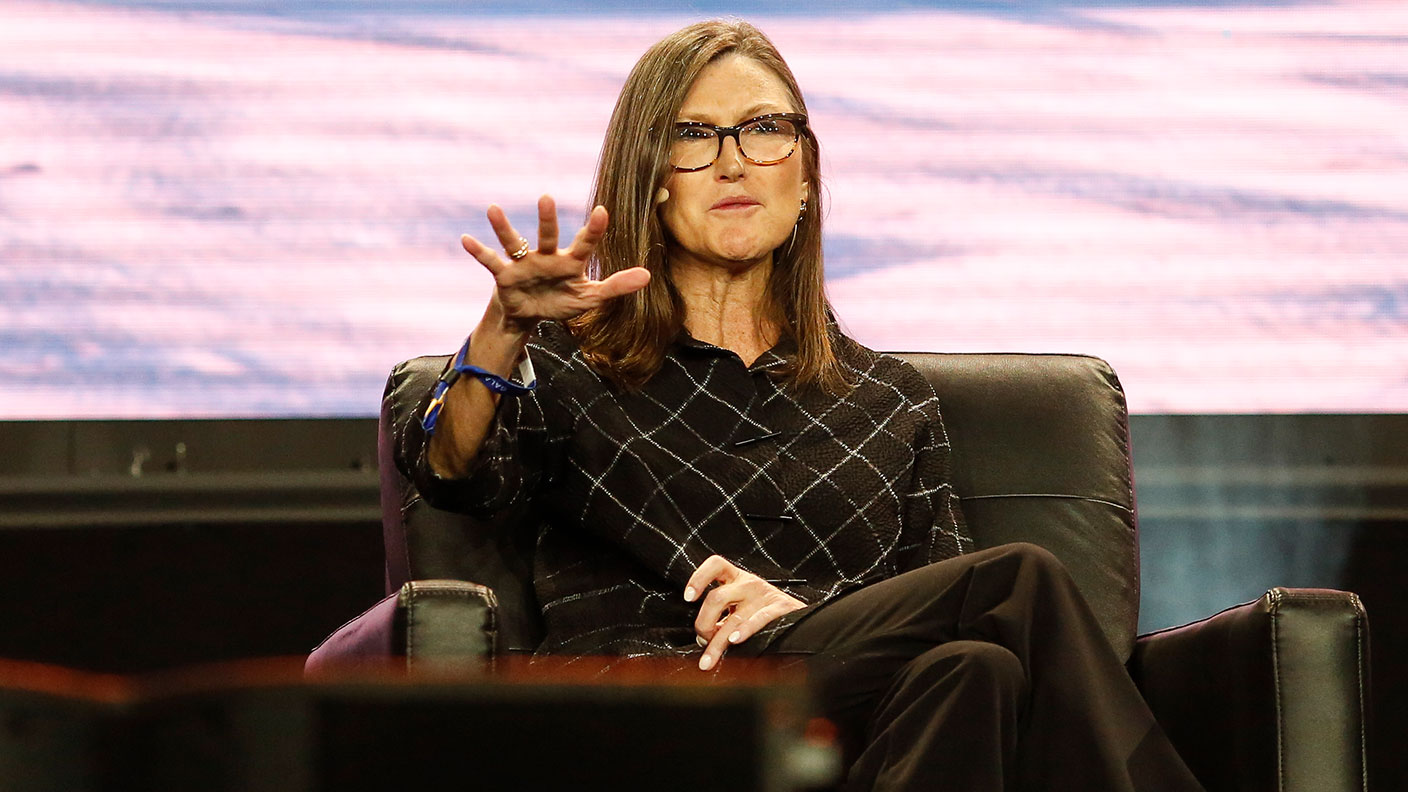Frisby’s forecasts – the year-end autopsy: how did he do?
Dominic Frisby looks back on the ten market forecasts he made at the start of the year and looks at what he got right, and what he got wrong.

Get the latest financial news, insights and expert analysis from our award-winning MoneyWeek team, to help you understand what really matters when it comes to your finances.
You are now subscribed
Your newsletter sign-up was successful
Want to add more newsletters?

At the beginning of each year, I get out my crystal ball and make ten predictions about the year ahead.
I try to make those predictions as specific as possible, in order to give myself as much scope as possible to be wrong.
Then at the end of the year I go back and mark those predictions and that's what I am doing today.
Try 6 free issues of MoneyWeek today
Get unparalleled financial insight, analysis and expert opinion you can profit from.

Sign up to Money Morning
Don't miss the latest investment and personal finances news, market analysis, plus money-saving tips with our free twice-daily newsletter
Don't miss the latest investment and personal finances news, market analysis, plus money-saving tips with our free twice-daily newsletter
Going back and marking yourself is quite a valuable exercise, if only to remind yourself how quickly the investment landscape and the mood around it can change.
I made ten predictions about 2019 how well did I do?
No direct hits but no epic fails either
A reminder of the points scoring system: two points for a direct hit (very rare); one point for sort-of-vaguely-right; zero points for a miss; and -1 for an epic fail.
1. Gold: 0
Right, first up: gold. I wasn't bullish enough and this one gets me zero points straight off the bat. "Lows in the $1,220 zone, highs in the $1,360-$1,390 zone, with an outside chance we head above $1,450" was my prediction.
The low for the year was $1,270 and boy did we go above $1,450 over $100 above. Not an epic fail, but zero points all the same.
2. Oil: 1
Brent Crude was at $52 a barrel at the beginning of the year. I said it would go to $70 and it did. $74 in fact. But $52 was the low, when I thought it would touch $45. Just the one point.
3. Sterling: 1
Frisby's outlook for sterling was: "A weak first half of the year, but it all starts to come together in the second half." That's pretty much what we got. August was the turning point. I predicted lows of $1.22 and highs of $1.38. The low was actually $1.20 and the high $1.35. Not far off but, again, just the one point.
4. Bitcoin: 1
I am giving myself one point for my next prediction on bitcoin which was that "2019 is the year in which bitcoin makes its bear-market low." That low seems to have come in at around $3,000 (I thought it would be lower). We are currently at $6,500, and in a downtrend. We may be on course to retest that low early next year, who knows? But for now, one point.
5. Helium: 1
Every year some niche commodity becomes the hot investment and this year I suggested it would be helium. There's a huge shortage of it. Helium prices are indeed up about 135%, but the plethora of helium-focused small-caps that I was hoping for never really materialised. One point.
6. Japanese yen: 1
I thought the yen would have a good year, hitting something like parity with the US dollar ie 100 (or $0.01 to 1). The yen had an okay year and a particularly good run from May through to August, when it reached 104 but it never got to parity. 1 point.
7. S&P 500: 0
Zero points for my prediction on the S&P 500. Though I said we'd end the year higher, I didn't think we would break out to new highs and we did.
I've been such a permabull on the S&P in my Money Mornings that I'm tempted to give myself a point. I can't believe I was so muted at the turn of the year, but there you go: I was. Moods change.
8. House prices: 2
Two points however for my prediction on the UK housing market, which was for more stagnation, particularly at the top end (thanks, largely, to high stamp duty). There would be more activity lower down, and indeed there was.
9. Brexit: 2
Two points also for my prediction on Brexit that "this one will run and run". We wouldn't leave on 29 March. Article 50 will get delayed. And how it was. Twice. We never left. Brexit is still running!
10. The footie: 2
And finally my Brucey-bonus sports prediction was that Manchester City not Liverpool (who were top at the time) would win the league, with Huddersfield, Fulham and Cardiff all going down. My only real bullseye and the most useless bullseye of the lot. Two points.
All in all 11 points. Not a great showing, really, as most of my points were accumulated where I didn't make specific price predictions. Price predictions can be a lottery but I like to get at least one right.
On the other hand, no epic fails. I usually get a couple of them as well. So what can I say? As far as my predictions are concerned, a year of mediocrity.
I've really enjoyed writing on these pages this year, and I'm looking forward to next. In the meantime, I hope you have a terrific Christmas, and make an absolute pot of money in 2020.
Daylight Robbery How Tax Shaped The Past And Will Change The Future is available at Amazon and all good bookstores with the audiobook, read by Dominic, on Audible and elsewhere. If you want a signed copy, you can order one here.
Get the latest financial news, insights and expert analysis from our award-winning MoneyWeek team, to help you understand what really matters when it comes to your finances.

-
 Pensioners ‘running down larger pots’ to avoid inheritance tax as rule change looms
Pensioners ‘running down larger pots’ to avoid inheritance tax as rule change loomsChanges to inheritance tax (IHT) rules for unused pension pots from April 2027 could trigger an ‘exodus of large defined contribution pension pots’, as retirees spend their savings rather than leave their loved ones with an IHT bill.
-
 Why do experts think emerging markets will outperform?
Why do experts think emerging markets will outperform?Emerging markets were one of the top-performing themes of 2025, but they could have further to run as global investors diversify
-
 Are UK house prices set to fall? It’s not so simple
Are UK house prices set to fall? It’s not so simpleAnalysis Figures suggest UK house prices are starting to slide, but we shouldn’t take these numbers at face value, explains Rupert Hargreaves.
-
 Tesco looks well-placed to ride out the cost of living crisis – investors take note
Tesco looks well-placed to ride out the cost of living crisis – investors take noteAnalysis Surging inflation is bad news for retailers. But supermarket giant Tesco looks better placed to cope than most, says Rupert Hargreaves.
-
 It may not look like it, but the UK housing market is cooling off
It may not look like it, but the UK housing market is cooling offAnalysis Recent house price statistics show UK house prices rising. But John Stepek explains why the market is in fact slowing down and what this means for you.
-
 Think the oil price is high now? You ain’t seen nothing yet
Think the oil price is high now? You ain’t seen nothing yetAnalysis The oil price has been on a tear in recent months. Dominic Frisby explains why oil in fact is still very cheap relative to other assets.
-
 What can markets tell us about the economy and geopolitics?
What can markets tell us about the economy and geopolitics?Sponsored Markets have remained resilient despite Russia's war with Ukraine. Max King rounds up how reliable the stockmarket is in predicting economic outlooks.
-
 The tech bubble has burst – but I still want a Peloton
The tech bubble has burst – but I still want a PelotonAnalysis Peloton was one of the big winners from the Covid tech boom. But it's fallen over 90% as the tech stock bubble bursts and and everything else falls in tandem. Here, Dominic Frisby explains where to hide as markets crash.
-
 The market is adjusting to a new “short dreams, long reality” world
The market is adjusting to a new “short dreams, long reality” worldAnalysis As interest rates rise, things are starting to change, says John Stepek. Reality is biting back. Gone are the fanciful ideas built on hope – a business now needs a solid foundation.
-
 Are UK house prices heading for a fall?
Are UK house prices heading for a fall?Analysis UK house-price growth is slowing as interest rates rise. But interest rates aren’t all that matters for house prices, says John Stepek.